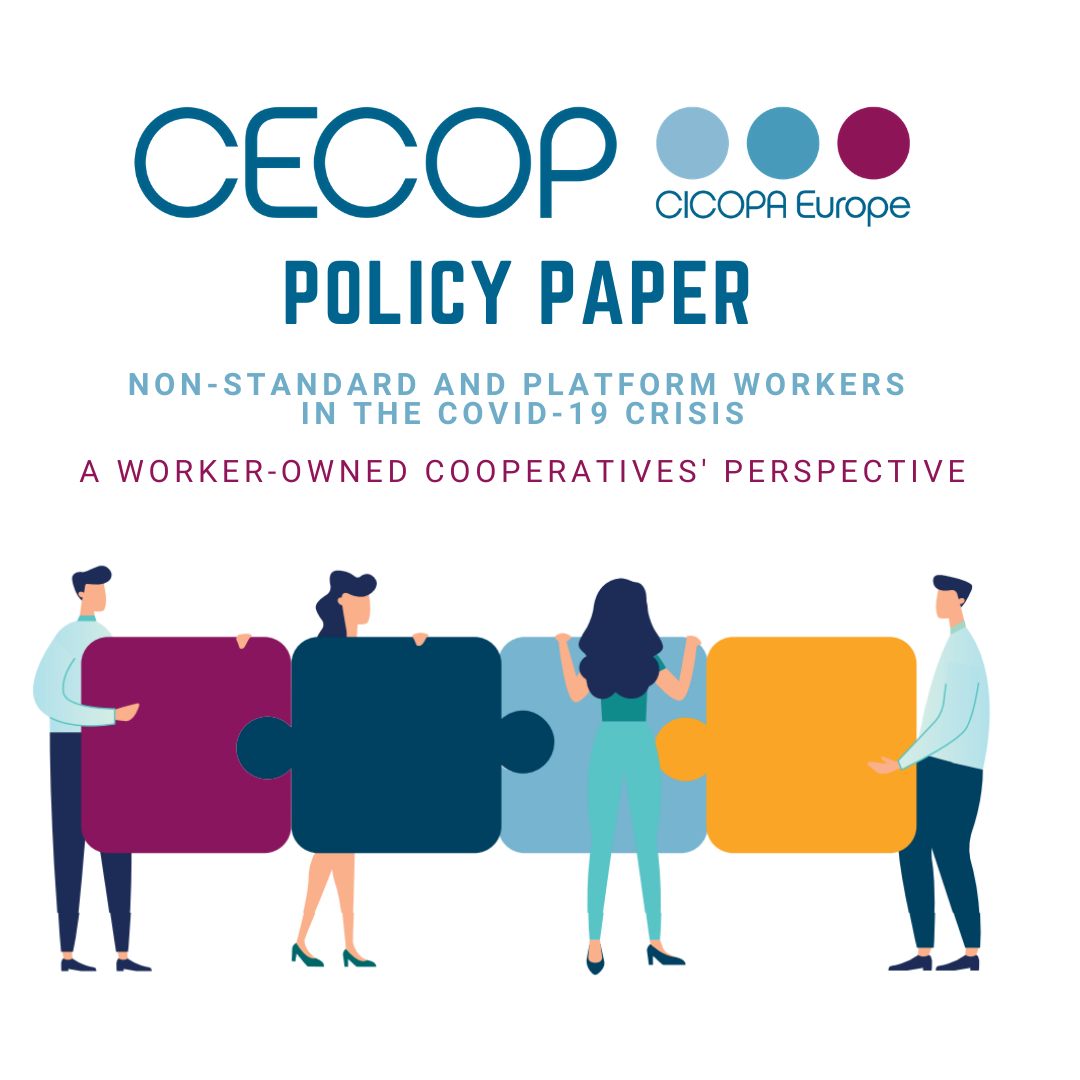
The COVID-19 pandemic that unravelled over the world led to tremendous losses of lives across the world. With huge efforts and strict measures taken, it was possible to slow the spread of the coronavirus in Europe, but the constant threat of a new outbreak, as well as the economic implications of the fight against COVID-19, remain challenges for European societies and economies. As for many aspects, the confinement measures and their impact exacerbated underlying challenges societies were already facing before COVID-19 spread. This is particularly the case of non-standard and platform workers who struggled during this crisis, as many national rescue packages failed to address their needs. Whereas cooperatives showed their resilience in times of turmoil in the past, this crisis is new and the uncertainties for the future are high.
The COVID-19 crisis showed that the recognition of non-standard workers, including platform workers, remains a challenge in national and European labour regulations, leaving workers vulnerable and making fitting policies complicated to obtain. The failure to adapt national and European labour legislation to cover non-standard workers worsened the impact of the current crisis, putting workers incomes and livelihoods at risk.
| Download the policy paper here. |







 Employment & Social Inclusion
Employment & Social Inclusion  Entrepreneurship
Entrepreneurship Sustainable Growth
Sustainable Growth 


